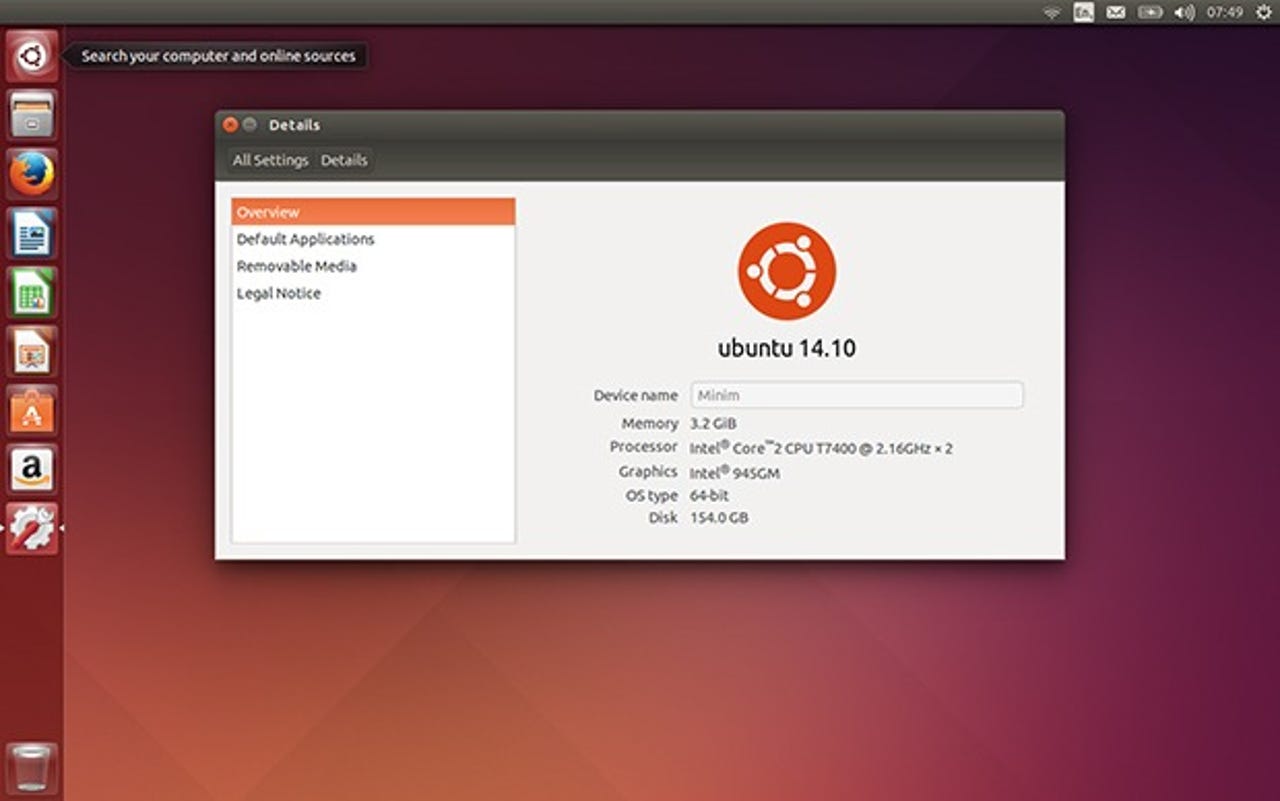Ubuntu 14.10 has landed — and it's not just for desktops


When people think about Ubuntu, they generally think about the desktop. The new release of Ubuntu 14.10 — while it certainly does include a new and improved desktop — saves its biggest improvements for its cloud and server versions.
This new release, Utopic Unicorn, features what parent company Canonical calls "the fastest, most secure hypervisors on bare metal, as well as the latest in container technologies with Docker v1.2."
- Read more: Six Clicks: An early look at Ubuntu 14.10
The company also claims that "Ubuntu offers user-level container control, the ability for any user to spin up containers without the need for superuser privileges, providing higher security, privilege separation and greater system robustness." This is a feature that's being explored in the just released Docker 1.3. The point of container support is, of course, so you can run more application instances on the same server or cloud than you can using vanilla virtualization solutions such as KVM.
The Unicorn also integrates many popular cloud technologies such as Cloud Foundry; ElasticSearch; big data's Hadoop with Hive and PigLatin; and real-time big data analytics with Apache Storm.
For DevOps, Ubuntu also comes with what I think is the best high-level DevOps tool around: Juju. The latest version of this service orchestration program makes it easier than ever to deploy and scale cloud applications on public and private cloud, or on bare metal via Canonical's Metal-as-a-Service (MaaS).
Today, using MaaS, Ubuntu 14.10 presents a consistent operating system experience not just on x86 and x64 but on ARM, ARM64, and POWER8 as well. With this release, Ubuntu has truly become a server operating system for all architectures. Using MaaS, you can also provision not just Ubuntu but Windows Server/Hyper-V, CentOS and openSUSE.
With Juju's new Machine View, developers can easily manage scale-out workloads at the machine level, in addition to the service level, In addition, with its drag-and-drop GUI, you can now orchestrate Windows guests side by side with Linux.
On the cloud side, Ubuntu 14.10 now supports the just released OpenStack Juno. This gives users more granular policy controls for object storage, as well as greatly improved Hadoop big data support, and beta support for network function virtualization (NFV).
Making sure that all this works in the real world, Canonical is testing out its new releases with OpenStack at its OpenStack Interoperability Lab (OIL). With OIL, Canonical claims to build over 3,000 OpenStack clouds each month, using different combinations of Ubuntu, OpenStack, and third-party technologies.
Ubuntu is already the most popular OpenStack Linux. With this latest release, Red Hat, Mirantis, HP, and all the other would-be OpenStack powers have their work cut out for them to catch up with Canonical.
Related stories: